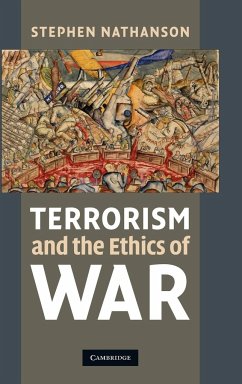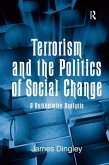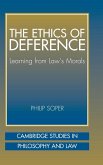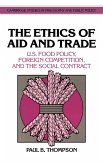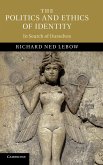Stephen Nathanson is Professor of Philosophy at Northeastern University, Boston, Massachusetts. He is the author of Should We Consent to Be Governed? (1992, 2000) and of numerous articles on the death penalty, patriotism and economic justice.
Introduction
Part I. Terrorism: What's in a Name?: 1. The problem of defining terrorism
2. Defining terrorism
3. What makes terrorism wrong?
4. Innocence and discrimination
5. 'Who dun it' definitions of terrorism
Conclusion: taking stock
Part II. Why Moral Condemnations of Terrorism Lack Credibility: Introduction: toward morally credible condemnations of terrorism
6. Why standard theories fail to condemn terrorism
7. Just war theory and the problem of collateral damage
Conclusion: categorical vs. conditional criticisms of terrorism
Part III. Defending Noncombatant Immunity: Introduction: the ethics of war-fighting: a spectrum of possible views
8. The realist challenge to the ethics of war
9. An ethic of war for reasonable realists
10. Walzer on noncombatant immunity as a human right
11. The supreme emergency exception
12. Rights theories, utilitarianism, and the killing of civilians
13. Immunity rights vs. the right of self-defense
14. A rule utilitarian defense of noncombatant immunity
15. Why utilitarian criticisms of noncombatant immunity are mistaken
16. Is noncombatant immunity a 'mere' convention?
Part IV. How Much Immunity Should Noncombatants Have?: Introduction: the problem of collateral damage
17. The problem of collateral damage killings
18. The ethics of collateral damage killings
Conclusion: terrorism and the ethics of war
Bibliography
Index.
Introduction; Part I. Terrorism: What's in a Name?: 1. The problem of defining terrorism; 2. Defining terrorism; 3. What makes terrorism wrong?; 4. Innocence and discrimination; 5. 'Who dun it' definitions of terrorism; Conclusion: taking stock; Part II. Why Moral Condemnations of Terrorism Lack Credibility: Introduction: toward morally credible condemnations of terrorism; 6. Why standard theories fail to condemn terrorism; 7. Just war theory and the problem of collateral damage; Conclusion: categorical vs. conditional criticisms of terrorism; Part III. Defending Noncombatant Immunity: Introduction: the ethics of war-fighting: a spectrum of possible views; 8. The realist challenge to the ethics of war; 9. An ethic of war for reasonable realists; 10. Walzer on noncombatant immunity as a human right; 11. The supreme emergency exception; 12. Rights theories, utilitarianism, and the killing of civilians; 13. Immunity rights vs. the right of self-defense; 14. A rule utilitarian defense of noncombatant immunity; 15. Why utilitarian criticisms of noncombatant immunity are mistaken; 16. Is noncombatant immunity a 'mere' convention?; Part IV. How Much Immunity Should Noncombatants Have?: Introduction: the problem of collateral damage; 17. The problem of collateral damage killings; 18. The ethics of collateral damage killings; Conclusion: terrorism and the ethics of war; Bibliography; Index.

